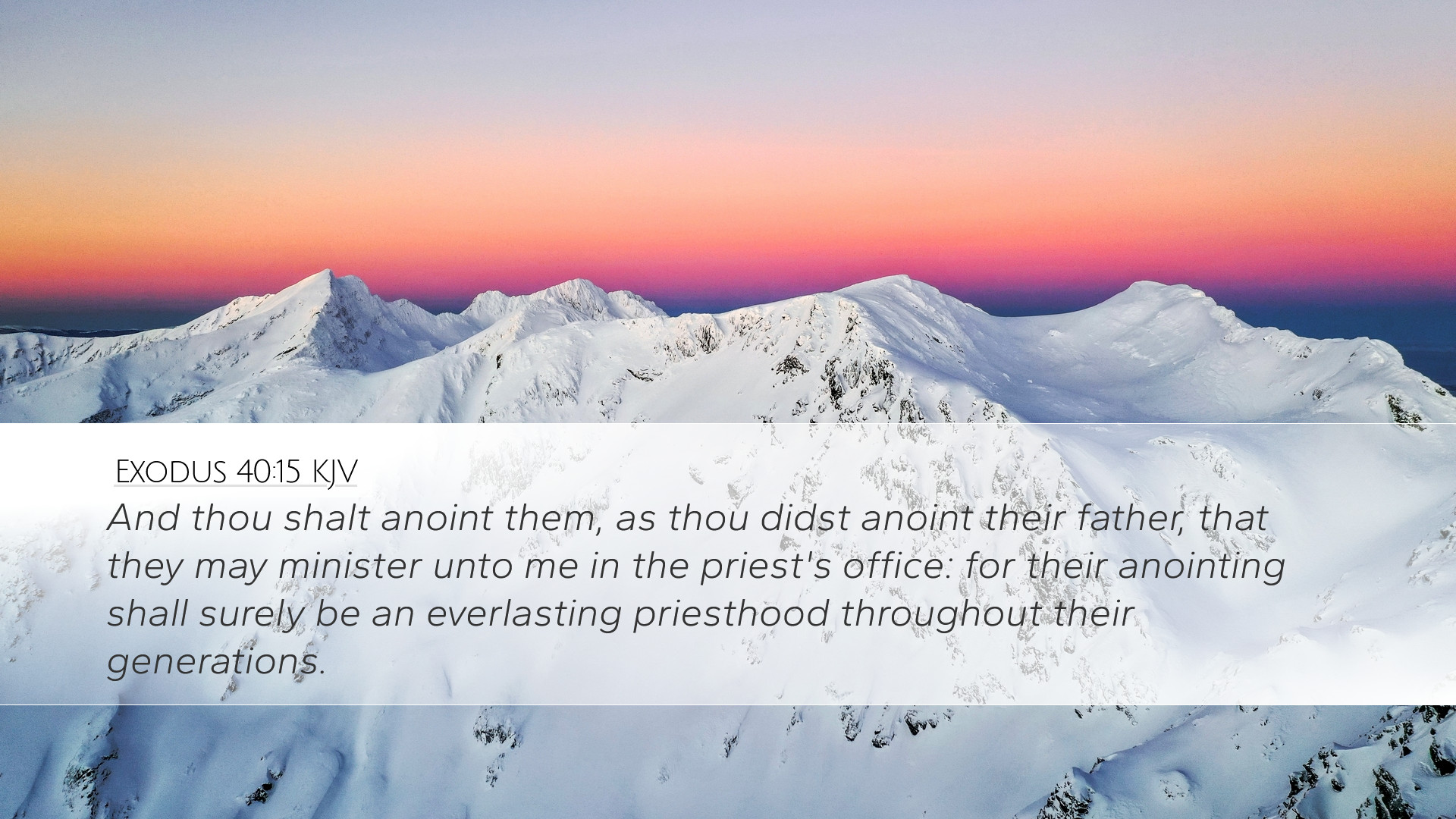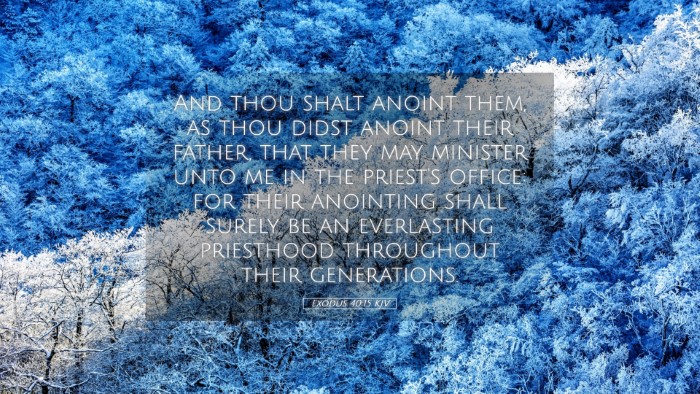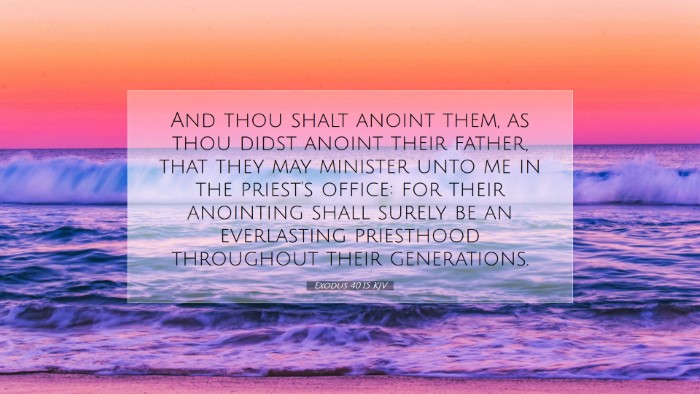Commentary on Exodus 40:15
Verse: Exodus 40:15 – "And thou shalt anoint them, as thou didst anoint their father, that they may minister unto me in the priest's office: for their anointing shall surely be an everlasting priesthood throughout their generations." (KJV)
This verse encapsulates the Lord’s instructions concerning the establishment of the priesthood within the Israelite community. Its profound significance is underscored by the act of anointing, which symbolizes divine appointment and the sanctification necessary for service before God.
Insight from Public Domain Commentaries
Matthew Henry's Commentary
Anointing as a Sign of Divine Appointment: Matthew Henry emphasizes that the act of anointing signifies God's choice. This distinguishes the priesthood from other roles; the priests are set apart for holy service. The ritual reflects God's sovereignty and the sacredness of the task entrusted to these individuals.
Continuity of the Priesthood: The reference to the anointing of the priests as continuing the legacy of Aaron highlights a critical aspect of leadership in Israel. Henry notes that the phrase "everlasting priesthood" indicates the importance of lineage and signifies a perpetual divine covenant, ensuring that the service in the tabernacle remains uninterrupted throughout generations.
Albert Barnes' Notes on the Bible
The Ritual of Anointing: Barnes elaborates on the significance of the anointing oil used in this ceremony. It was symbolically filled with fragrances and represented the Holy Spirit’s presence. The use of such oil implies not only the sanctification of the priests but also serves as a type pointing toward Christ, who is our eternal High Priest.
Implication of Ministerial Duty: Barnes further discusses how the verse lays upon the priests the heavy responsibility of ministering before God. This denotes not only liturgical duties but also the moral obligation to live righteously, being examples of holiness to the people they serve. The weight of their calling reflects the seriousness of pastoral duty for future leaders.
Adam Clarke's Commentary
Spiritual Leadership: Clarke points to the essential nature of the priestly role in mediating between God and the people. He suggests that this was not merely a task but a spiritual leadership designed to guide Israel in their covenant relationship with God. The priesthood stood as a bridge and intercessor, embodying God’s presence among the Israelites.
Perpetuity and Succession: Clarke emphasizes that the mention of "everlasting" does not imply an unbroken line in every generation, but rather the establishment of a role that would always exist within the community of Israel. This role, reflective of Jesus Christ, points toward the ultimate fulfillment of priesthood in the New Testament.
Theological Implications
The implications of Exodus 40:15 stretch far beyond its immediate historical context. These insights contribute to an understanding of the themes of anointing, service, and the priestly identity laid down in Scripture. They also forecast the coming of Christ as the ultimate High Priest, fulfilling the sacrificial system inaugurated here.
- Anointing: A powerful symbol of God’s presence and approval.
- Priestly Duty: Emphasizes both responsibility and accountability in leadership.
- Covenant Relationship: Signifies God’s enduring commitment to His people through their leaders.
Concluding Thoughts
In understanding Exodus 40:15 through the lens of these commentaries, we gain a richer perspective on the weight of priestly duties that extend into our lives today. Pastors and church leaders are reminded of the sacred task they have inherited, marked by anointing and service that echoes the calling given to Aaron and his sons. Each generation continues to bear the responsibility of being a conduit of God’s grace, leading with integrity and holiness.
As this verse invites deeper meditation, may it strengthen the resolve of current and future ministers to fulfill their roles with reverence, understanding the profound legacy set forth in the Scriptures.


